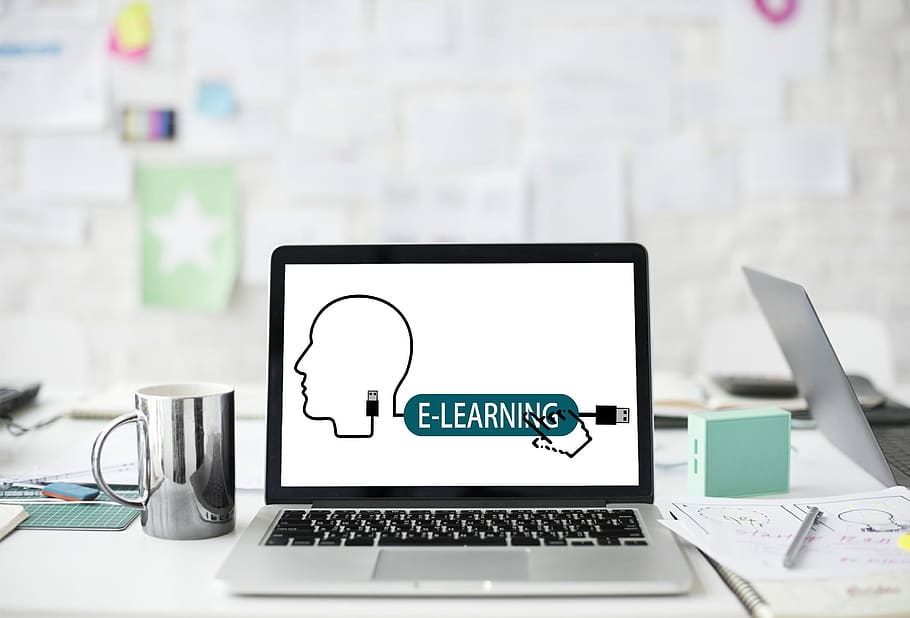Online learning platforms have become a cornerstone in the ever-evolving landscape of education. In recent years, their popularity has skyrocketed, reshaping traditional learning paradigms and providing individuals with unprecedented access to diverse educational opportunities.

Table of Contents
Introduction
Definition of Online Learning Platforms
Online learning platforms refer to digital spaces where individuals can engage in educational activities remotely. These platforms offer a wide array of courses, ranging from academic subjects to skill-based training, delivered through various mediums like videos, quizzes, and interactive modules.
Rise in Popularity
The surge in the popularity of online learning platforms is a testament to the changing dynamics of education. With the advent of technology, learners now have the flexibility to acquire knowledge at their own pace and convenience.
Importance in the Modern Educational Landscape
Online learning platforms play a pivotal role in addressing the evolving needs of learners. As the traditional educational model faces challenges, these platforms provide a dynamic alternative, adapting to the demands of the digital age.
Types of Online Learning Platforms
MOOCs (Massive Open Online Courses)
MOOCs, characterized by their open access and scalability, have gained immense popularity. Platforms like Coursera and edX offer courses from renowned institutions, making high-quality education accessible to a global audience.
Learning Management Systems (LMS)
LMS platforms, commonly used in institutional settings, facilitate the organization and delivery of content. They enhance collaboration among learners and educators, creating a centralized hub for educational resources.
Educational Apps
The rise of mobile technology has given birth to educational apps, catering to diverse learning preferences. These apps provide a seamless learning experience, allowing users to engage with educational content on the go.
Tutoring Platforms
Online tutoring platforms connect learners with tutors across the globe. This personalized approach to learning ensures that individuals receive tailored assistance, promoting a deeper understanding of the subject matter.
Advantages of Online Learning Platforms
Flexibility and Convenience
One of the primary advantages of online learning platforms is the flexibility they offer. Learners can access materials and participate in courses from any location at any time, accommodating diverse schedules.
Access to a Wide Range of Courses
Online platforms break geographical barriers, providing access to courses from institutions worldwide. This diversity allows learners to explore subjects that may not be available in their local educational institutions.
Cost-Effectiveness
Online courses often come at a fraction of the cost of traditional education. With no need for physical infrastructure, online learning platforms reduce expenses, making education more affordable for a broader audience.
Interactive Learning Experience
Incorporating multimedia elements, interactive quizzes, and collaborative projects, online learning platforms create engaging learning experiences. These interactive components enhance understanding and retention of the material.
Challenges in Online Learning
Technical Issues
While online learning offers convenience, technical challenges such as internet connectivity issues or platform glitches can hinder the learning process. Addressing these challenges is crucial for a seamless educational experience.
Lack of Face-to-Face Interaction
Traditional education thrives on face-to-face interaction, fostering a sense of community among learners. Online platforms, while offering convenience, may lack this interpersonal dynamic, impacting social and collaborative skills.
Self-Motivation and Discipline
Online learning requires a high level of self-motivation and discipline. Without a physical classroom structure, learners must proactively manage their time and stay motivated to complete courses successfully.
Quality of Content
Ensuring the quality of online course content is essential. The absence of regulatory oversight can result in variability in the material’s depth and accuracy, impacting the overall educational experience.

Impact of Online Learning on Traditional Education
Blended Learning Approaches
The integration of online learning into traditional classrooms has given rise to blended learning approaches. This hybrid model combines the benefits of both traditional and online education, catering to diverse learning styles.
Integration of Technology in Traditional Classrooms
The influence of online learning extends beyond virtual spaces. Traditional educational institutions increasingly incorporate technology, using online resources to complement classroom teaching and enhance the learning environment.
Changing Educational Paradigms
The rise of online learning platforms challenges traditional educational paradigms, prompting institutions to adapt to the changing needs of learners. This evolution signifies a broader shift towards a more flexible and learner-centric approach.
Future Trends in Online Learning Platforms
Artificial Intelligence in Education
The integration of artificial intelligence (AI) in online learning platforms enhances personalization. AI algorithms analyze learning patterns and provide customized content, optimizing the learning experience.
Personalized Learning Paths
Future online learning platforms will likely offer more personalized learning paths. Tailoring content based on individual learning styles and preferences ensures a more effective and enjoyable educational journey.
Gamification and Interactive Elements
Gamification elements, such as badges and rewards, make learning more engaging. Integrating interactive elements like simulations and virtual reality further enhances the immersive nature of online education.
Global Collaboration in Learning
Online platforms facilitate global collaboration, connecting learners from different corners of the world. This interconnectedness fosters a diverse and enriching learning environment, broadening perspectives.
Choosing the Right Online Learning Platform
Factors to Consider
Choosing the right online learning platform involves considering factors such as course content, accreditation, and user reviews. A thorough evaluation ensures that the chosen platform aligns with individual learning goals.
Reviews and Recommendations
Reading reviews and seeking recommendations from peers or industry experts provides valuable insights. Learning from others’ experiences helps in making informed decisions and selecting platforms with a proven track record.
Matching Learning Styles
Each learner has a unique learning style. Considering individual preferences, whether visual, auditory, or kinesthetic, ensures that the chosen platform aligns with the learner’s preferred mode of learning.
Success Stories
Individuals who Achieved Success through Online Learning
Highlighting success stories inspires and motivates potential learners. Stories of individuals who transformed their lives and careers through online education showcase the transformative power of these platforms.
Impact on Career Advancement
Examining how online learning contributes to career advancement emphasizes the practical benefits. Individuals can acquire new skills and credentials, enhancing their marketability in a competitive job market.
Tips for Effective Online Learning
Time Management Strategies
Effective time management is crucial in online learning. Implementing strategies such as setting realistic goals, creating a schedule, and avoiding procrastination ensures a structured and productive learning experience.
Active Participation in Discussions
Engaging in online discussions and forums fosters a sense of community. Actively participating in these interactions allows learners to gain insights from peers and instructors, enriching the overall learning experience.
Setting Realistic Goals
Setting realistic and achievable goals helps in maintaining motivation. Breaking down larger objectives into smaller milestones provides a sense of accomplishment and progress throughout the learning journey.
Seeking Support when Needed
Online learning may sometimes pose challenges. Encouraging learners to seek support, whether from instructors or peers, promotes a collaborative and supportive learning environment.
Conclusion
In conclusion, online learning platforms have emerged as transformative forces in education. While they offer unparalleled flexibility and access to diverse courses, challenges such as technical issues and maintaining motivation must be addressed. The impact of online learning extends beyond virtual spaces, influencing traditional education and shaping the future of learning.
FAQs
- Are online courses as effective as traditional classroom learning? Online courses can be highly effective, offering flexibility and a diverse range of subjects. However, individual preferences and learning styles play a significant role in determining effectiveness.
- How do I choose the right online learning platform for my needs? Consider factors such as course content, accreditation, and reviews. Matching the platform to your learning style ensures a more enjoyable and effective educational experience.
- Can online learning platforms help with career advancement? Yes, online learning platforms provide opportunities to acquire new skills and credentials, enhancing your marketability in the job market.
- What role does technology play in the future of online education? Technology, including artificial intelligence and interactive elements, will play a crucial role in personalizing learning experiences and fostering global collaboration.
- How can I stay motivated in online learning? Setting realistic goals, actively participating in discussions, and seeking support when needed are key strategies to stay motivated in online learning.










Raylan Bullock
yandanxvurulmus.O7psi4FD7cvc
Kaleb Rollins